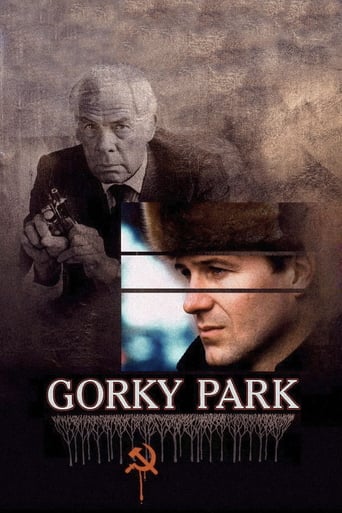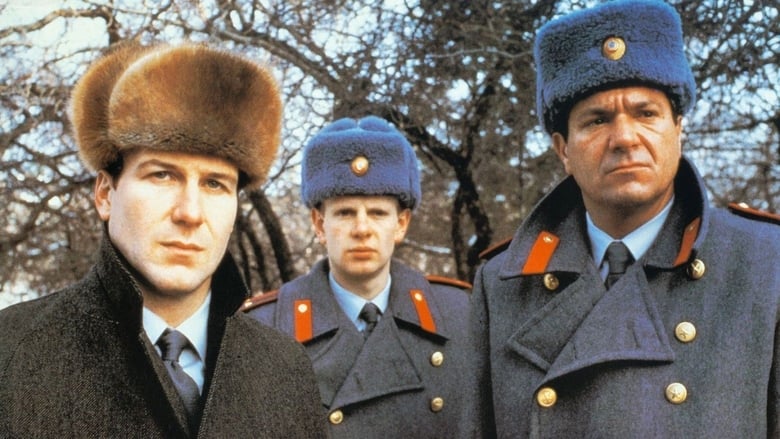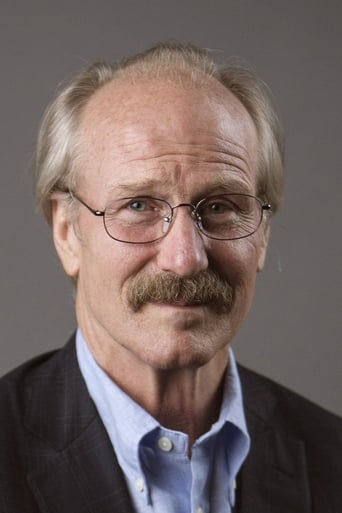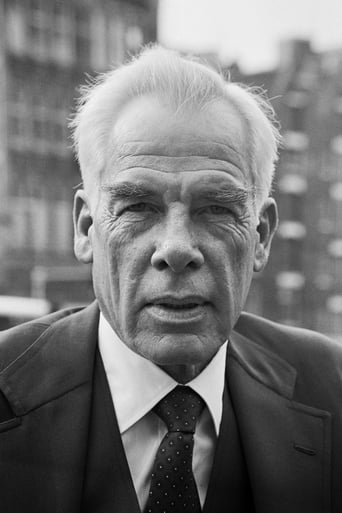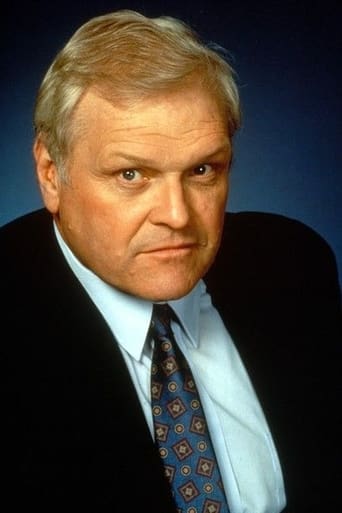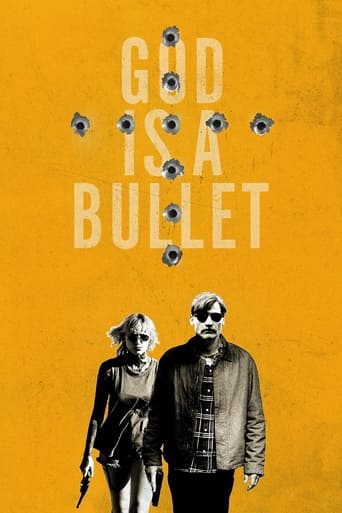Gorky Park (1983)
Police Inspector Renko tries to solve the case of three bodies found in Moscow's Gorky Park but finds his attempts to solve the crime impeded by his superiors. Working on his own, Renko seeks out more information and stumbles across a conspiracy involving the highest levels of the government.
Watch Trailer
Cast
Similar titles




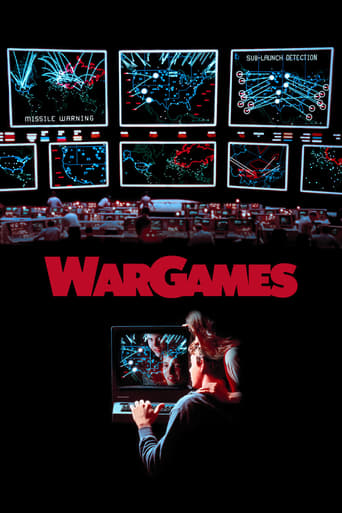
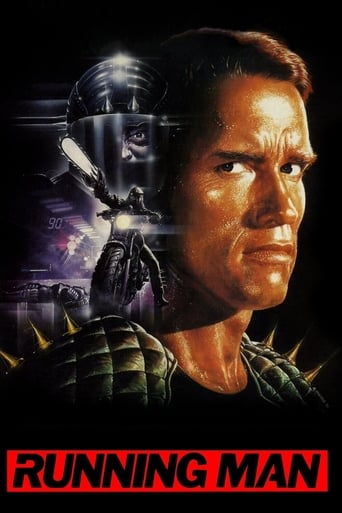
Reviews
Truly Dreadful Film
That was an excellent one.
Redundant and unnecessary.
Through painfully honest and emotional moments, the movie becomes irresistibly relatable
Something truly hideous is being hidden under snowy graves, and from where it came, from who put it there, and why sustains this mystery set in communist Moscow. For militia officer William Hurt, the discovery of three dead bodies with the faces removed is a horrific sight, and hoping that the KGB will take the case off of his hands proves false. The presence of two Americans (Lee Marvin and Brian Dennehy) adds more mystery to the case, with Dennehy blaming Hurt for killing his brother and Marvin somehow connected in ways that Hurt can only guess.Every time he seems closer to solving the case, a key witness or partner is brutally murdered, leaving only a beautiful Russian girl (Joanna Pacula) as a key witness. This intriguing but convoluted thriller keeps your attention but can get rather frustrating as it twists until it really begins to get painful. The Russian location shooting is beautiful (everything there seems huge!), and even in just speaking English with slight accents, the American actors playing Russians are believable. Marvin, playing a rather perverted character, is commanding, especially when discussing his love of sable, Hurt is understandably perplexed and disgusted, and Dennehy shows how to non-act and maintain your attention even when not saying a word. Pacula, as well, is interesting, and its obvious that everyone under Michael Apted's direction was challenged by the material. However, it has an ugly premise and the convoluted motivations just don't gel when all is revealed. This is the type of film that you might view once, but afterwards file it away to never pick up again.
One of Michael Apted's weakest efforts, this adaptation of Martin Cruz Smith's novel is a tedious mystery that has a good start, a messy and lousy middle and a thrilling ending but the picture as a whole isn't worthy of our efforts. It works as a way to see a more intellectual version of future action film "Red Heat" (a fun to watch), both films made during the Cold War whose main character is a good Soviet, far from the villiainesque stereotypes created by the American cinema, combative of the Communism just as its government but at least they knew how to offer a different point of view. In it, William Hurt plays an officer in charge of investigating the mystery behind three faceless corpses found buried in Gorky Park and which may involve an American businessman (Lee Marvin) who deals with Russian officials. To assist Hurt, there's an American detective (Brian Dennehy), and to get on his way there's one girl (Joanna Pacula) who knows too much and you probably know the rest which concerns about her involvement and the main character, another lousy love story we can't possibly care.The plot is terribly confusing and with meaningless dialogs and a pathetic romance that doesn't convince. There's nothing powerful here, and the reason behind the murders is something to be guessed by viewers only known of those who read the novel. When the charade is solved...it's so lighthearted and simplistic that it doesn't make us feel anything. "Gorky Park" lacks in flow and rhythm, painfully slow and morose, only hitting good notes when creating moments of enjoyable action. On the bright side, we must appreciate the excellent use of locations in Helsink doubling for URSS, since they couldn't film in there, and Helsink proves to be a fine choice, beautifully photographed by cinematographer Ralf D. Bode. And there's good performances by Marvin, Hurt, Dennehy and Ian Bannen as the KGB chief. Pacula only gets credit for her good looks and use of a Russian accent, completely ignored by all the other "Russians" in the film, mostly played by British actors to differentiate from the English spoken by the Americans, characteristic used in other old films. I love movies in that style but only when they're involving. This detective story just didn't work. 5/10
I saw this film on a US army base in West Germany about a year after its release. I didn't have enough German to go to a commercial movie theatre and this was the only game in town. I knew nothing about it, hadn't even heard of the book let alone read it; I did know both William Hurt and Lee Marvin and, as I said, it was the only game in town. I thought it was dire. A few years later someone lent me the book which I enjoyed so much that I went on to read the subsequent Martin Cruz Smith novels featuring Arkady Renko. Now, some 26 years later the film has re-surfaced. I checked it out in case my first impression was wrong. It wasn't. This is STILL dire. It's a thriller without any thrills, a who-done-it entirely lacking suspense, set in a Moscow that's about as Russian as Upper Sandusky. The leading lady has no charisma, sensuality, or even bread-and-butter attractiveness that I was able to detect and there's more chemistry between a moth and an icicle than between her and leading man Hurt. For reasons best known to themselves the producers have seen fit to dispense with Renko's wife and the killer is known too us far too soon. All in all a joke.
On a cold winter's day, three murdered corpses are found in the snow in a city park. The bodies have had their faces and fingertips sliced off in order to hinder identification. The police officer assigned to the case, however, proves to be a tireless investigator, and eventually succeeds in establishing the identity of the victims. His investigations lead him to suspect that the murders are linked to a corrupt businessman who is being protected by powerful vested interests among the Establishment.That could be the plot of a Humphrey Bogart-style film noir, and "Gorky Park" can be seen as an example of neo-noir, the movie genre which uses modern cinema techniques in order to produce a contemporary equivalent of the classic noirs of the forties and fifties. (Other neo-noirs from the eighties include "Body Heat", which also starred William Hurt, and "No Mercy"). The difference here, of course, is that the city in question is not New York or Los Angeles, New Orleans or Miami, but Moscow. The police investigator is Arkady Renko of the Soviet militia, the park is the city's Gorky Park (hence the title) and the villain of the piece is Jack Osborne, an American fur importer with close ties to the Soviet Establishment.In 1983, when the Cold War was still far from over, the idea of setting a crime thriller in the Soviet Union with a Russian hero and an American villain must have been a novel one, and one which might have disturbed some American patriots. Nevertheless, "Gorky Park" is far from being pro-Soviet. (Despite the suspicions of the likes of Joe McCarthy that Hollywood was awash with Communist sympathisers, there were very few American films during the Cold War era which attempted to make propaganda on behalf of Soviet Communism, Warren Beatty's "Reds" perhaps being an exception).The film is set during the twilight years of the old Soviet Union, the brief interlude between the death of Leonid Brezhnev (an event referred to in the script) and the rise of the liberal, reforming Mikhail Gorbachev. The country we see here is still an oppressive dictatorship, but Russia of Andropov and Chernenko is a very different place from the Russia of Lenin and Stalin. The predominant atmosphere is no longer one of revolutionary fanaticism but rather one of cynicism and corruption. By the early eighties Soviet Communism had evolved into what George Orwell described in "1984" as "oligarchical collectivism", a strongly hierarchical system where those at the top of the pecking order use their position to secure privileges and material advantages for themselves. Senior officials in the KGB, the body supposedly charged with defending the purity of communist ideology, are happy to make a profit out of doing business with a ruthless foreign capitalist.Given the film's attitude towards the Soviet system, it was clearly not going to be possible to shoot it in Russia, so Helsinki stood in for Moscow, as it often did in Western films made during the Cold War. (The Finnish capital was a versatile performer and could also be called upon to play the role of Leningrad). This meant, of course, that well-known Moscow landmarks such as the Kremlin, Red Square or St Basil's Cathedral could not be shown, but director Michael Apted and cinematographer Ralf Bode were still able to invest the film with a cold, bleak atmosphere redolent of the Northern European winter, and serving as a metaphor for the bleak, soulless system under which Russians had to live at this period. (A distinctive, atmospheric visual look is a common feature of neo-noir films).The dogged investigator is another common feature of both noir and neo-noir, and William Hurt's Arkady Renko falls within this tradition. Like a number of heroes played by Bogart and other leading noir actors such as Robert Mitchum and Glenn Ford, Renko is taciturn and outwardly stolid and unemotional, but inwardly he a man of strong feelings with a burning determination to see justice done, even when he knows that he will be putting himself at risk by continuing with his investigations. Hurt, who gives an excellent performance, was a good choice for the role, as he is often very good at playing men who find it difficult to express their feelings, showing us the genuine depths of feeling which lie below his character's surface reserve. ("The Accidental Tourist" is another example of this ability).There were too many good supporting performances for me to single them all out, but special mentions must go to Joanna Pacula as Irina Asanova, Renko's love interest and a woman with connections with both the three murder victims and with Osborne, and Lee Marvin as the villainous Osborne himself. This was Pacula's first film in the West (she was exiled from her native Poland after Jaruzelski's military coup and the crackdown on the Solidarity movement) and I am always surprised that after this excellent start she did not go on to become a bigger Hollywood name. As one might expect from Dennis Potter, the screenplay is literate and intelligent. Like "Body Heat" and "No Mercy", this is one of the better crime dramas of the eighties. 7/10
